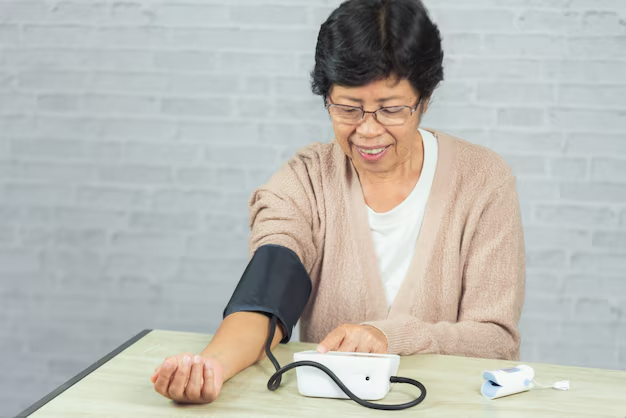Understanding the Connection: Can Low Blood Sugar Lead to Hypertension?
Imagine your body as a finely tuned orchestra, where every system plays its part harmoniously. When something disrupts this harmony, like low blood sugar, it might contribute to an unexpected crescendo in blood pressure. But can low blood sugar, or hypoglycemia, really cause hypertension? Let's explore this intricate relationship, examining how glucose levels and blood pressure interact, along with practical insights for managing both.
How Blood Sugar and Blood Pressure Interact
The Basics of Blood Sugar
Blood sugar, or glucose, is the body’s primary energy source. Maintaining stable blood glucose levels is crucial for overall health. When blood sugar levels drop, the body can react in several ways that might influence blood pressure:
- Release of Hormones: Hypoglycemia triggers the release of hormones such as adrenaline, which can cause the heart to beat faster and blood pressure to rise temporarily.
- Vasoconstriction: Adrenaline also stimulates vasoconstriction, narrowing blood vessels and potentially increasing blood pressure.
Understanding Blood Pressure
Blood pressure refers to the force of blood against the walls of your arteries. When this pressure is consistently high, it can lead to hypertension, a condition that significantly increases the risk of heart disease and stroke. Now, let's examine the potential link between low blood sugar and hypertension.
Exploring the Potential Link
Stress Hormones and Blood Pressure
When blood sugar dips, it can lead to anxiety and stress, which often correlate with hypertension. Stress hormones like cortisol and adrenaline are released in response to low blood sugar, potentially causing a rise in blood pressure levels.
The Role of Eating Patterns
Irregular meal patterns or diets low in nutrition may lead to fluctuations in blood sugar levels, indirectly affecting blood pressure. Skipping meals or eating high-sugar foods can cause blood sugar spikes and crashes, which may influence blood pressure variability.
Related Health Conditions
Diabetes and Hypertension
People with diabetes often experience blood sugar fluctuations and are at a higher risk for hypertension. While low blood sugar itself isn't a direct cause of high blood pressure, the overall instability in glucose management can contribute to cardiovascular stress, leading to hypertension.
Hypoglycemia Unawareness
In some cases, individuals might not recognize the symptoms of low blood sugar—a condition called hypoglycemia unawareness. These unnoticed dips can cause adrenaline surges, which may affect heart rate and blood pressure, sometimes erratically.
Practical Tips for Managing Blood Sugar and Blood Pressure
Implementing a Balanced Diet
A healthy, balanced diet can play a pivotal role in managing both blood sugar and blood pressure:
- Eat Regularly: Consistent meal times help prevent blood sugar dips. Aim for balanced meals with proteins, whole grains, and vegetables.
- Limit Sugars: Reduce intake of sugary drinks and foods that cause blood sugar to spike.
- Include Heart-Healthy Foods: Opt for foods low in sodium and rich in nutrients like potassium and fiber to support healthy blood pressure levels.
Exercise Regularly
Physical activity is a powerful tool for maintaining healthy blood sugar and blood pressure levels. Engaging in regular exercise helps the body use insulin more efficiently, improving glucose stability and cardiovascular health.
Monitoring Health Metrics
Keep track of your health by:
- Monitoring Blood Sugar: Use a blood glucose monitor if recommended to keep tabs on levels, especially if you have diabetes.
- Checking Blood Pressure: Regular measurements can help identify patterns and trigger necessary lifestyle adjustments.
Recognizing Symptoms and Seeking Guidance
Hypoglycemia Symptoms
Being aware of the signs of low blood sugar is vital:
- Shakiness or Dizziness
- Sweating or Palpitations
- Irritability or Confusion
If these symptoms are felt, consuming a small amount of fast-acting glucose, like fruit juice or glucose tablets, may help elevate blood sugar levels.
When to Consult a Healthcare Professional
Persistent or severe issues with blood sugar or pressure should be assessed by a healthcare provider. If you notice irregular patterns in your health metrics or experience ambiguous symptoms, professional guidance can be invaluable.
Final Insight
The interaction between low blood sugar and blood pressure is a nuanced one, influenced by several physiological and lifestyle factors. While hypoglycemia itself isn't a direct cause of hypertension, the body's response to low blood sugar—through stress hormone release and heart-related changes—can indirectly influence blood pressure levels.
Summary of Key Points: 🌟
- 💡 Balance diet and timing: Eat consistent, balanced meals to maintain stable blood sugar and support heart health.
- 🏋️ Regular exercise: Promotes efficient insulin use and cardiovascular health.
- 📊 Monitor regularly: Keep track of blood sugar and pressure for trends and adjustments.
- 🚨 Recognize symptoms: Be aware of signs indicating low blood sugar or hypertension and act quickly if they occur.
- 🤝 Seek professional advice: Regular check-ups can help tailor personal health strategies.
Understanding and managing the intricate dance between blood sugar and blood pressure can empower you to maintain a harmonious rhythm in your health journey.

Related Articles
- Are Eggs Bad For Hypertension
- Are Endocrine Disorders Causing Hypertension Rare
- Can Alcohol Cause Hypertension
- Can Allergies Cause Hypertension
- Can Anemci People Get Hypertension
- Can Anemia Cause Hypertension
- Can Antibiotics Cause Hypertension
- Can Anxiety Cause Hypertension
- Can Asthma Cause Hypertension
- Can Atherosclerosis Cause Hypertension
